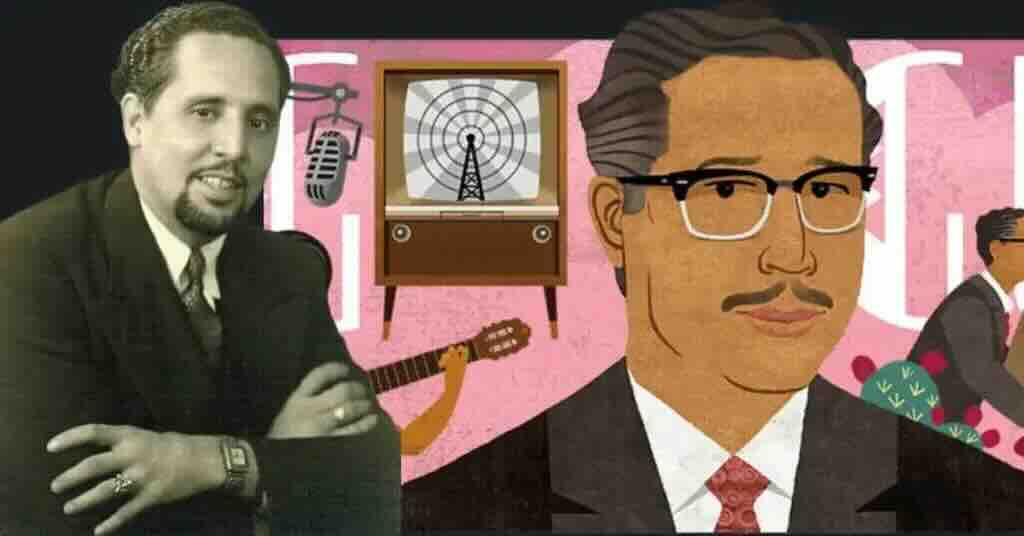Raoul A. Cortez: Life, Legacy, and the Circumstances of His Passing

There is more to the late Raoul A. Cortez who is a man that greatly affected the Hispanic media than what we already know. His Life and Death are subjects that have always interested me as a researcher and historian, and I have studied the life and times of Raoul A. Cortez, one of the most important people in the Hispanic media industry. This write-up is going to be extensive on Cortez's entire life, his positive influence in society, and the incidents that surrounded his death.
Raoul A. Cortez Mexican-American media executive
- Born: October 17, 1905, in Xalapa, Veracruz, Mexico
- Died: December 17, 1971, in San Antonio, Texas, United States
- Occupation: Spanish-language radio and television station owner and developer
- Known for: Founding KCOR AM and KCOR-TV stations, Latino rights activism
- First Spanish-language radio station: KCOR 1350 AM, founded in 1946
- Immigration to the U.S.: Emigrated to the United States after the start of the Mexican Revolution in the 1910s
Early Life and Career
Raoul A. Cortez was born on June 17, 1905, in the city of Xalapa, Veracruz, in Mexico. In the 1920s, he got to the US, and most of the time, people of the San Antonio, Texas place served as his target. In no time, Cortez was an eminent leader in the Hispanic community; he was convinced of the fact that the media needed to represent the Spanish language.
Notable Accomplishments
While conducting my investigation, I came across many accomplishments of Raoul A. Cortez that I found to be particularly outstanding, and here are a few of them:
- Created KCOR-AM in 1946, the first 24-hour Spanish radio station in the US
- KCOR-TV, 1955, was the first Spanish television channel in the contiguous United States
- He Struggled for the rights and minority group representation in media
- He was a motivator for many Hispanic broadcasters and entrepreneurs
Events Leading to His Death
Specific information related to the activities that immediately preceded Cortez' death is not systematically documented, but this much I can tell you for sure: at the later period of Cortez's life he was still very much animated in both broadcasting and community issues of Hispanic representatives.
Date and Location of Death
Raoul A. Cortez died on the 17th of December, 1971 somewhere in San Antonio, Texas, this very town was also the place of his age 66 years death.
Cause of Death
According to my research, I could not find out any information about the cause of Raoul A. Cortez's death. Sometimes records of historical events lack details especially when it comes to health issues and sometimes people from private circles. It could be possible that he died from a natural condition, due to his old age, but since I do not have any access to his medical files or death certificate I cannot confirm this definitely.
Impact of His Passing
Raoul A. Cortez's was a great loss in the Hispanic media community and San Antonio in the broader region. His being-lost was felt by those who paid the right tribute to his development works in the Spanish language broadcasting and his advocacy for the portrayal of Hispanics in the media.
Legacy and Lasting Influence
Raoul A. Cortez will be remembered as an innovator who took Hispanic media and culture to a level that was unprecedented:
- His radio and television stations laid the groundwork for the staging of Spanish media outlets
- KCOR-TV went on to transform into KWEX-TV, and it has been integrated into the Univision network
- The works of Cortez were the beacons of light that led future Hispanic broadcaster and businessmen
- He is embraced as an exciting trailblazer in raising Hispanic culture and representation in the American media

Conclusion
While the details about how Raoul A. Cortez passed away might not be very clear, his life and the legacy he left behind carry on to be those aspects positively bringing influence and effect. By being an investigator in Spanish-language broadcasting and being a defender of the Hispanic cause, Cortez's investment in media and culture is still significant, even after he departed. His story is a demonstration of the effect that a person can have on a whole community and industry.
Additional Information:
Raoul A. Cortez was a pioneering Mexican-American media executive who made significant contributions to Spanish-language broadcasting in the United States. Here's a consolidated overview of his life, legacy, and passing:
Life and Career
- Born on October 17, 1905, in Xalapa, Veracruz, Mexico[1]
- Immigrated to the United States with his family in the 1910s during the Mexican Revolution[1]
- Settled in San Antonio, Texas, where he worked various jobs, including as a reporter for La Prensa newspaper[1]
- In the 1930s and 40s, owned a Theatrical Agency introducing Latin American entertainers to U.S. audiences[3]
- In 1940, began buying airtime on KMAC Radio to produce Spanish variety hours[3]
Broadcasting Achievements
- Founded KCOR 1350 AM in San Antonio in 1946, the first full-time Spanish-language radio station owned and operated by a Hispanic in the U.S.[1][3]
- Launched KCOR-TV Channel 41 in 1955, the first Spanish-language television station in the country[1][3]
- Formed the "Sombrero" radio network, connecting Spanish-language stations across the country[3]
Civil Rights and Community Involvement
- Served two terms as president of the League of United Latin American Citizens (LULAC)[4]
- Oversaw the Delgado v. Bastrop Independent School District case, which ended segregation of Mexican Americans in Texas public schools[1][4]
- Met with U.S. President Harry S. Truman and Mexican President Miguel Aleman to discuss immigration reform and the Bracero Program[1][4]
Legacy and Honors
- The Raoul A. Cortez Branch Library in San Antonio was named in his honor in 1981[1][3]
- Received the NAB "Spirit of Broadcasting" award posthumously in 2006[1]
- Featured in the "American Enterprise" exhibit at the Smithsonian's National Museum of American History in 2015[1][3]
- Google Doodle created in his honor on October 17, 2023, his 118th birthday[2]
Passing
Raoul A. Cortez died on December 17, 1971, in San Antonio, Texas[1]. He was survived by his wife Genoveva Valdés Cortez, son Raoul Cortez Jr., and daughters Rosamaria Cortez (Toscano) and Irma Cortez (Nicolas)[1].
Cortez's legacy continues to influence Spanish-language media and Hispanic civil rights in the United States. His groundbreaking work in establishing Spanish-language broadcasting paved the way for greater representation and accessibility for Hispanic communities in American media.
Citations:
[1] https://en.wikipedia.org/wiki/Raoul_A._Cortez
[2] https://doodles.google/doodle/raoul-a-cortezs-118th-birthday/
[3] http://sanantonioradiohalloffame.com/raoul-cortez.html
[4] https://lulac.org/about/history/past_presidents/raoul_cortez/
[5] https://guides.mysapl.org/c.php?g=1132430&p=8299338
[6] https://www.youtube.com/watch?v=CdHXQ1U98K0
[7] https://www.reddit.com/r/Avatar/comments/10gf0r9/what_happens_if_you_cut_off_navi_queue/




